Who would have thought that a game about a fishing village would be an effective argument for both the welfare state and, dare I say, the working class owning the means of production?
That’s Nusfjord, the best Uwe Rosenberg game that you probably haven’t played (yet).
If wishes were fishes
Every round of Nusfjord begins with everyone bringing in their catch. Each player has a player board that you’ll cover with boat tiles as the game goes on. Each boat tile covers up numbers representing a haul size. At the beginning, this is 3 fish, but it can get all the way up to 12. You take these fish into your hand, and you distribute them first to the elders in your village (more on this in a moment), your shares that other players own, your shares that you own, your reserve, and finally, if your reserve is full, you throw them back into the ocean (the general supply).
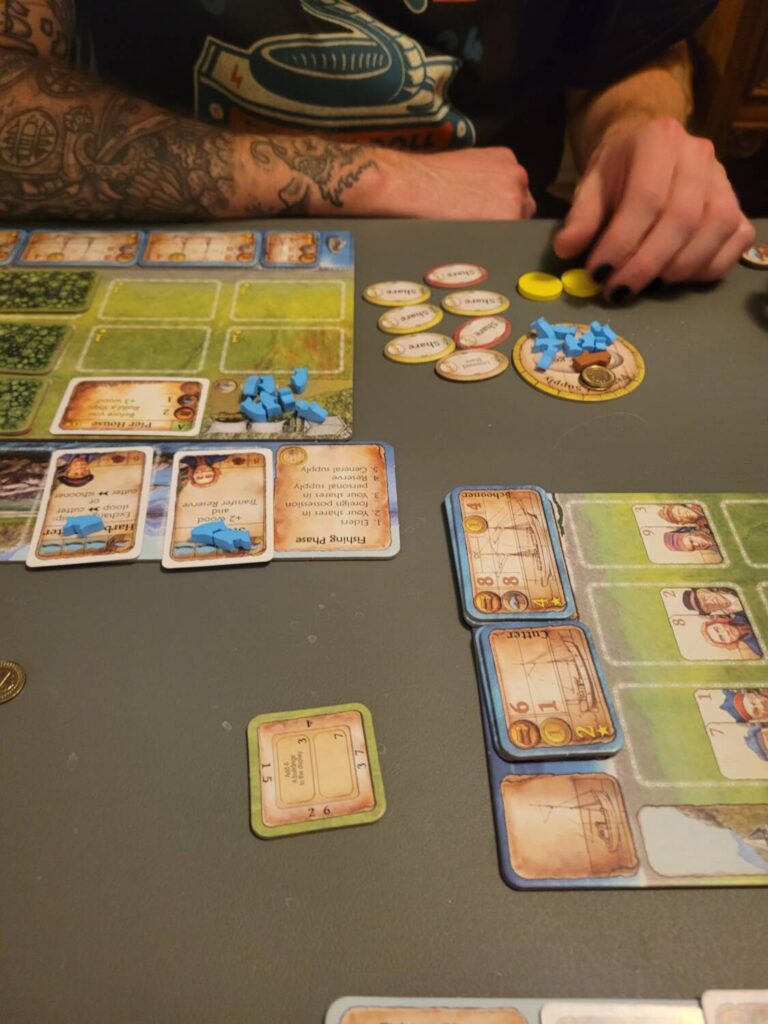
Elders are a type of card that functions as an additional action space (usually more powerful than the regular action space), but they take a fish every round from your overall haul. When they get to three fish, they give you one back, and the other two are tossed into the supply.
Shares are the way to get fish directly to yourself and other players. The reserve I mentioned above holds up to 8 fish, but you have to use an action to get them out of your reserve. Other players’ shares give you fish directly to use from their haul(s), and your shares give you fish directly from yours.
That’s how the fishing works. It feels great; it mimics the feeling of throwing your net out into the ocean and wrestling it in, paying everyone you owe along the way.
We’d all place workers
Nusfjord is a worker placement game, but it’s the good kind of worker placement game, where you don’t get more workers, which keeps the game from devolving into the classic “get the most workers to win” trope. You have three workers, so you have three actions each round. Nusfjord is 7 rounds long, so that means 21 actions. Use them wisely.
This is the portion of the game that is familiar to anyone who has played a hobbyist board game in the past 20 years. You place the worker, you get some stuff, or you buy some stuff. You can buy boats to increase your haul size, issue shares to get coins (which are points and sometimes used as currency), chop down forests (or thin them out) to get wood, the third resource in the game—standard resource management stuff.
The variability of the game comes in the form of the building market. Each game, you’re going to play with a deck that has a thematic focus of some kind. Some decks will focus on catching fish, some will focus on other things. They’re essentially scenarios. You have to clear forests off your player board so you can build the right building cards on your player board. They’ll give you points and powers.
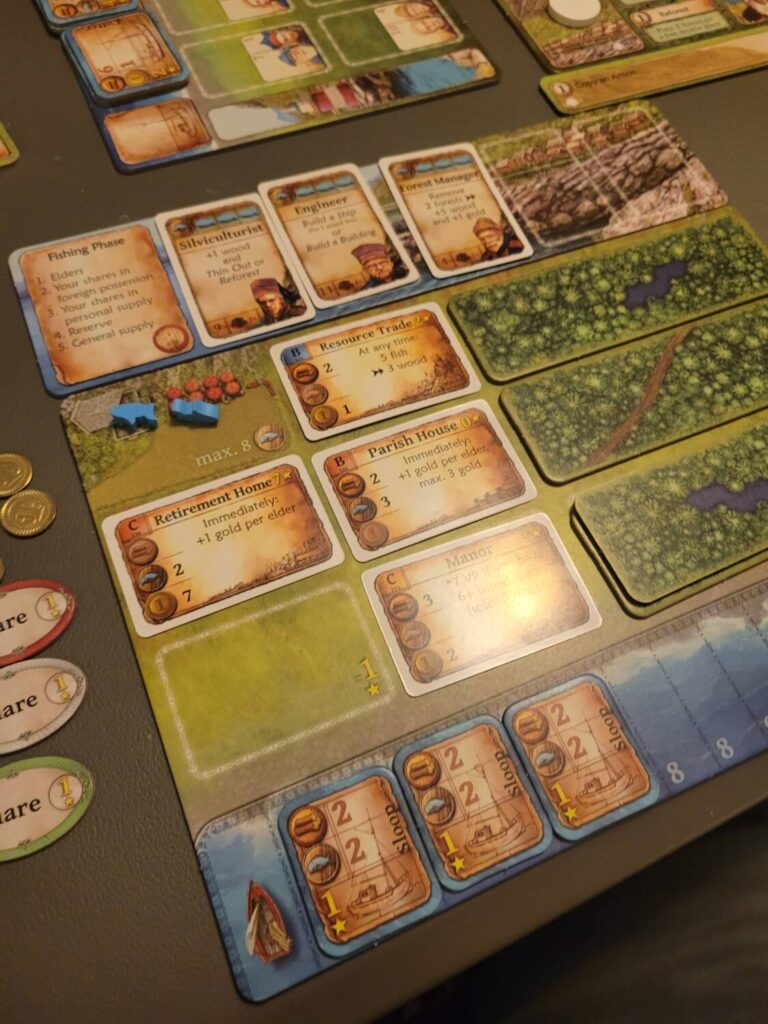
The aforementioned elders form one of the more useful and clever mechanisms in the game. There is a shared “table” board that players can send fish to in exchange for money. The more full the table is, the more fish you have to put on it to get a coin. When you take the “elder” action, you claim an elder, do the enhanced action they give you, and feed them a fish from the shared table. The elder is now yours, meaning you’re responsible for feeding them every round, and you now have a dedicated action space that can’t be swiped from you by another player, though you still need a fish from the table to feed them.
Fishy welfare
That’s pretty much it. The game is short, wrapping up in less than 90 minutes even with a full complement of 5 players. You get points for buildings, covering up building spaces, coins, and shares that you own.
Many games attempt to be super didactic, where they try to make their argument by telling you that it’s an argument, rather than having the game itself demonstrate that argument or back it up with evidence. Hegemony is a game that is the classic culprit of this. A bazillion rules to back up what is essentially a game where you play cards, and they randomly pull at the strings of a randomly determined economy (and don’t get me started on that game’s class politics).
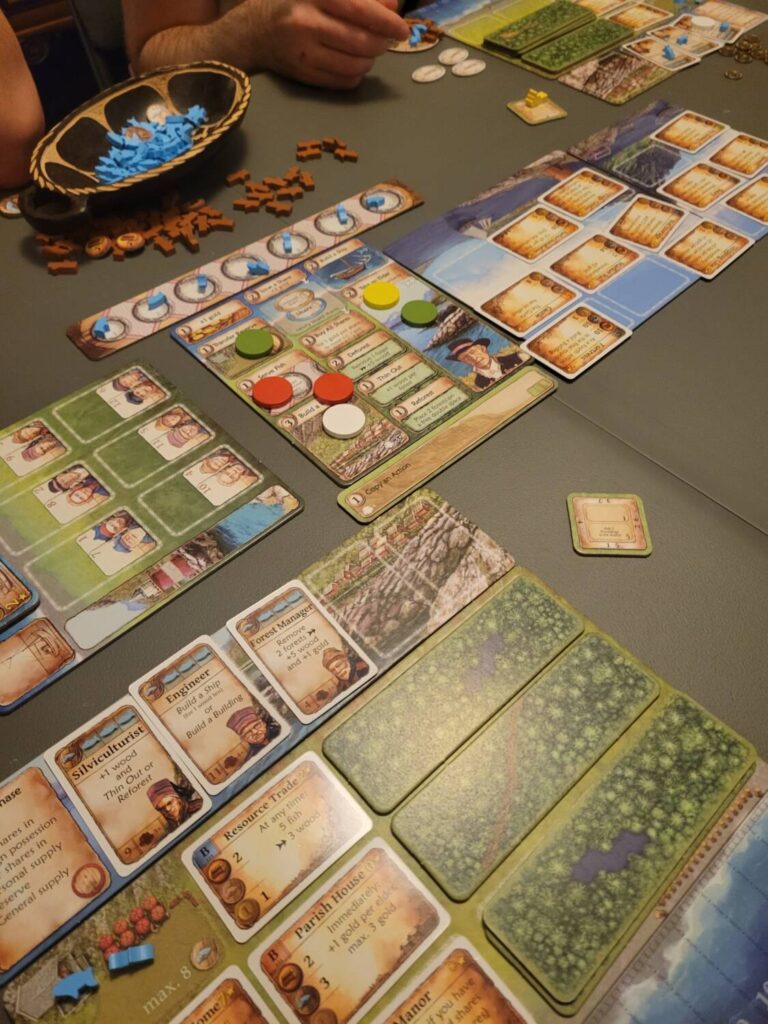
By contrast, Nusfjord is a quiet game. It’s a game where the rules create a system of relationships between the players and their economies. If you want the benefits of elder knowledge, you have to support those elders. It’s hard to pull fish out of the ocean—the people who pull it out ought to get first dibs. Careful management of reserves and the equitable distribution of them—the game has all of this, and it doesn’t club you over the head with any of it. Developing your town well gets you points.
Nusfjord makes its arguments quietly, though for some reason, there are no women elders. Let’s assume the best, no latent misogyny, maybe they’re all working on the boats or something.
That’s where you should be right now, playing Nusfjord, contemplating the waves and building a worker paradise.


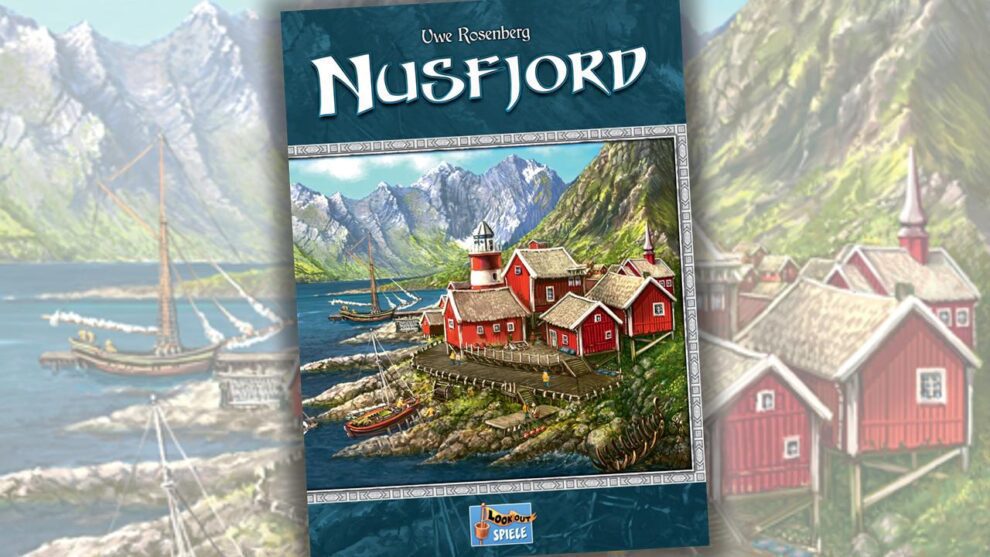

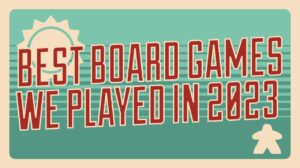






Add Comment